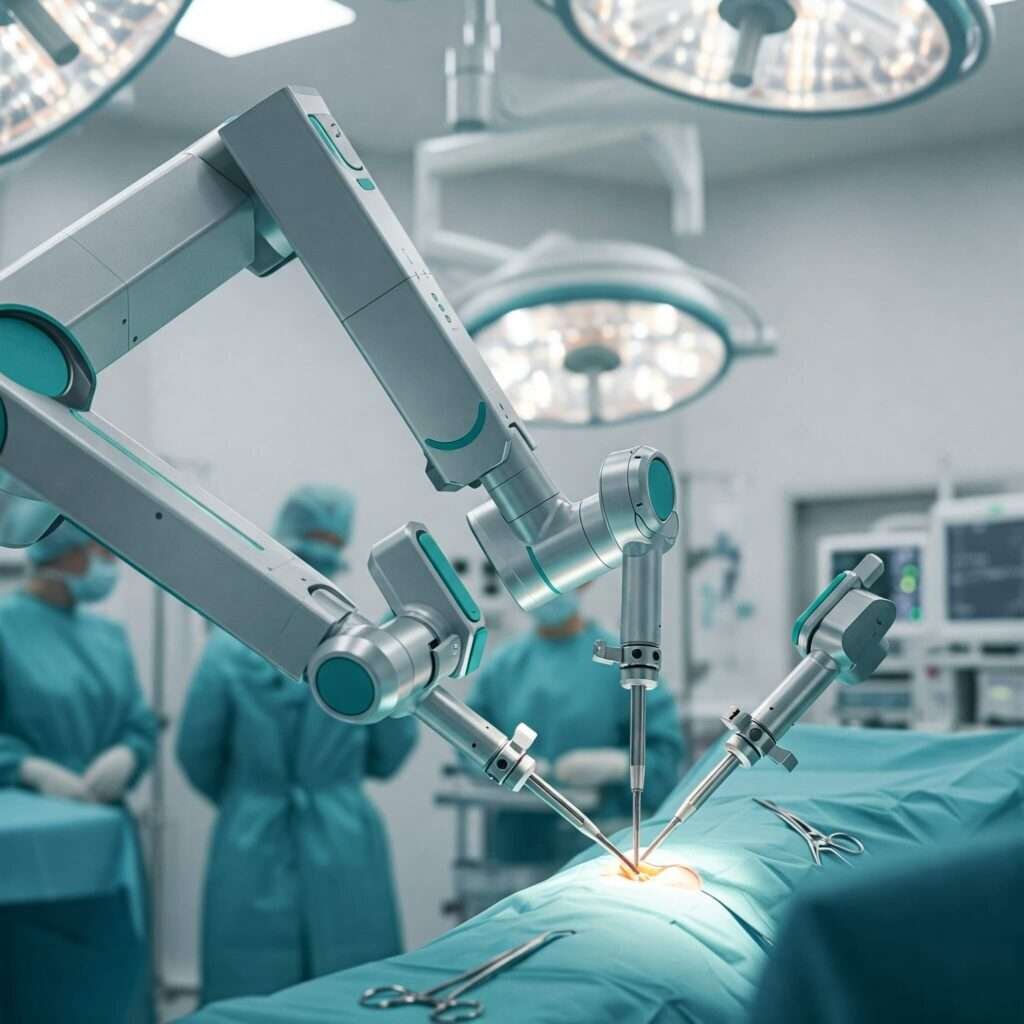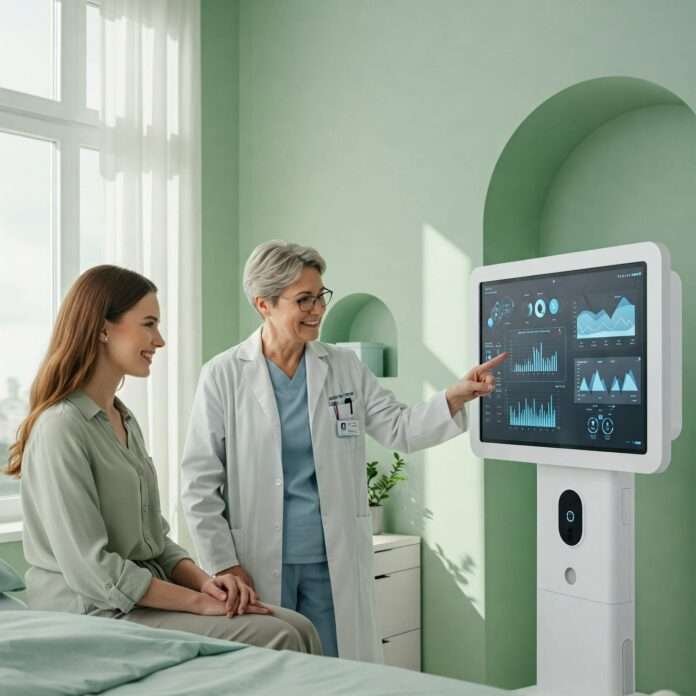Picture this: a few years ago, I was at a tech conference, sipping overpriced coffee, when a speaker demoed an AI tool that could diagnose skin cancer from a photo faster than a dermatologist. My jaw dropped. That was the moment I realized AI healthcare innovations weren’t just buzzwords—they were real, tangible, and a little bit mind-blowing.
AI in healthcare is exploding because it solves problems humans can’t tackle alone. It’s not about replacing doctors (not yet, anyway) but about supercharging their abilities. From crunching massive datasets to spotting patterns in X-rays, AI is like the ultimate sidekick. According to a 2023 study by Stanford Medicine, AI systems outperformed human radiologists in detecting certain types of lung cancer by 5%. Five percent might sound small, but when it’s your life on the line? That’s huge.
What’s Driving the AI Healthcare Revolution?
- Data, Data, Everywhere: AI thrives on big data. With billions of medical records, wearables, and genetic profiles, AI can analyze patterns humans miss.
- Speed and Accuracy: AI can process scans or lab results in seconds, catching issues early—like diabetic retinopathy before it blinds someone.
- Cost Savings: By automating routine tasks, AI could save the healthcare industry $150 billion annually by 2026, per McKinsey.
- Accessibility: AI-powered telemedicine apps are bringing care to remote areas, where doctors are scarce.
But here’s the kicker: it’s not all rosy. I’ll get to the risks in a bit—because, trust me, there’s a flip side.

AI in Healthcare: Real-World Examples You’ll Wish You Knew Sooner
Let’s get real for a second. AI isn’t some distant dream—it’s already here, saving lives. Last year, my cousin Sarah was diagnosed with breast cancer. Her doctor used an AI tool called Mammography AI to double-check her scans. The AI flagged a tiny anomaly the radiologist missed, and boom—early detection. Sarah’s in remission now, and I can’t help but wonder: would she be here without that tech?
AI-Driven Diagnostics
AI systems like IBM’s Watson Health are analyzing medical images, lab results, and even your Fitbit data to predict diseases before symptoms show up. Google’s DeepMind, for instance, can predict kidney failure 48 hours before it happens. Imagine getting a heads-up like that—life-changing, right?
Robotic Surgeons
Ever heard of the da Vinci Surgical System? It’s a robot that assists surgeons with pinpoint precision. I watched a YouTube clip of it performing a heart surgery, and it was like watching a maestro conduct an orchestra. These robots in healthcare reduce human error and speed up recovery. Fun fact: over 1 million procedures were performed with da Vinci in 2024 alone.
Virtual Health Assistants
Chatbots like Ada or Babylon Health are your 24/7 health buddies. Feeling a weird pain at 2 a.m.? Type in your symptoms, and these AI tools suggest whether it’s heartburn or something scarier. They’re not perfect—I once got told my sore throat might be strep when it was just allergies—but they’re improving fast.

The Dark Side of AI in Healthcare
Okay, let’s hit pause on the hype train. AI in healthcare isn’t all sunshine and rainbows. I’m a bit of a skeptic by nature—probably from years of seeing tech promises fizzle out. So, what’s the catch?
Bias in Algorithms
AI is only as good as the data it’s trained on. If that data is skewed (say, mostly from male patients), the AI might misdiagnose women or minorities. A 2021 study in Nature found that some AI diagnostic tools were less accurate for darker skin tones. That’s not just a glitch—that’s a life-or-death problem.
Privacy Nightmares
Your medical data is gold to hackers. AI systems need access to tons of it, and breaches happen. Remember the Anthem hack of 2015? Imagine that, but with your genetic code. Shudder.
The Human Touch
Here’s where I get a little sentimental. My family doctor, Dr. Patel, always asks about my dog before checking my blood pressure. Can a robot do that? AI might nail the diagnosis, but it can’t hold your hand when you’re scared. The future of healthcare needs to balance tech with empathy.

Will Robots Be Your Next Doctor?
So, here’s the million-dollar question: will robots replace doctors? My gut says no—at least not in our lifetime. AI in healthcare is more like a trusty co-pilot than a solo pilot. Doctors will still make the big calls, but they’ll lean on AI for speed and precision. Think of it like GPS: it gets you there faster, but you’re still driving.
That said, some jobs might vanish. Routine tasks like reading X-rays or scheduling appointments? AI’s got that covered. But for complex cases or emotional support, humans are irreplaceable. At least, I hope so.
What This Means for You
- Stay Informed: Learn about AI tools your doctor uses. Ask questions like, “Is this AI-checked?” Knowledge is power.
- Protect Your Data: Use secure platforms and demand transparency about how your info is stored.
- Embrace the Tech: Try AI health apps for minor issues, but always follow up with a human doctor for serious stuff.
- Advocate for Ethics: Push for unbiased, inclusive AI systems. Your voice matters.
The Future of Healthcare: A Personal Take
I’ll be honest—writing this post got me thinking about my own health. I’m not getting any younger, and the idea of an AI catching something early is comforting. But I also worry about a world where we rely too much on machines and forget the human side of healing. Maybe I’m old-school, but I believe medicine is as much art as science.
The future of healthcare is bright, but it’s up to us to steer it right. AI in healthcare could democratize medicine, save lives, and cut costs—but only if we address the risks head-on. So, what do you think? Are you ready to trust a robot with your health, or does the idea give you the creeps?




























